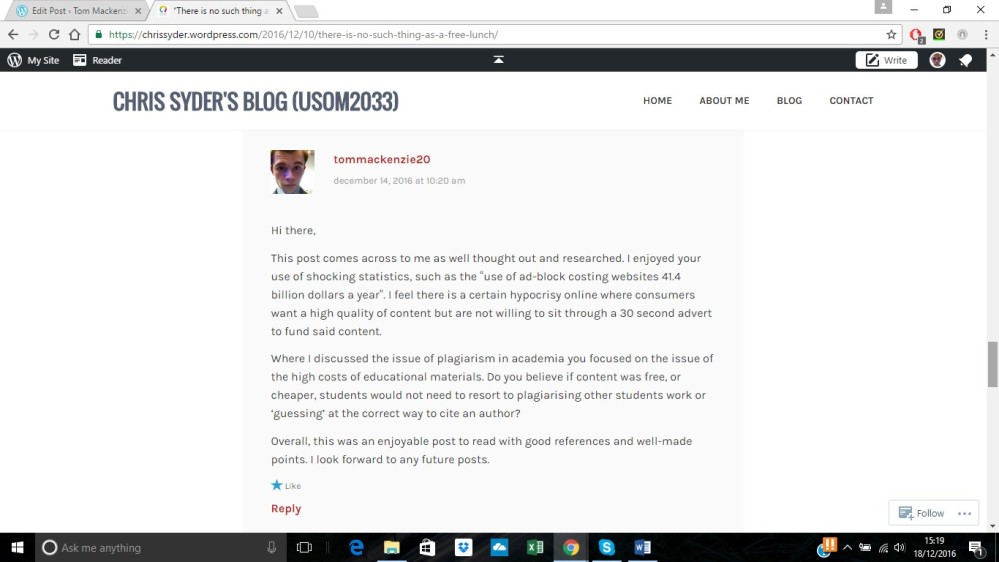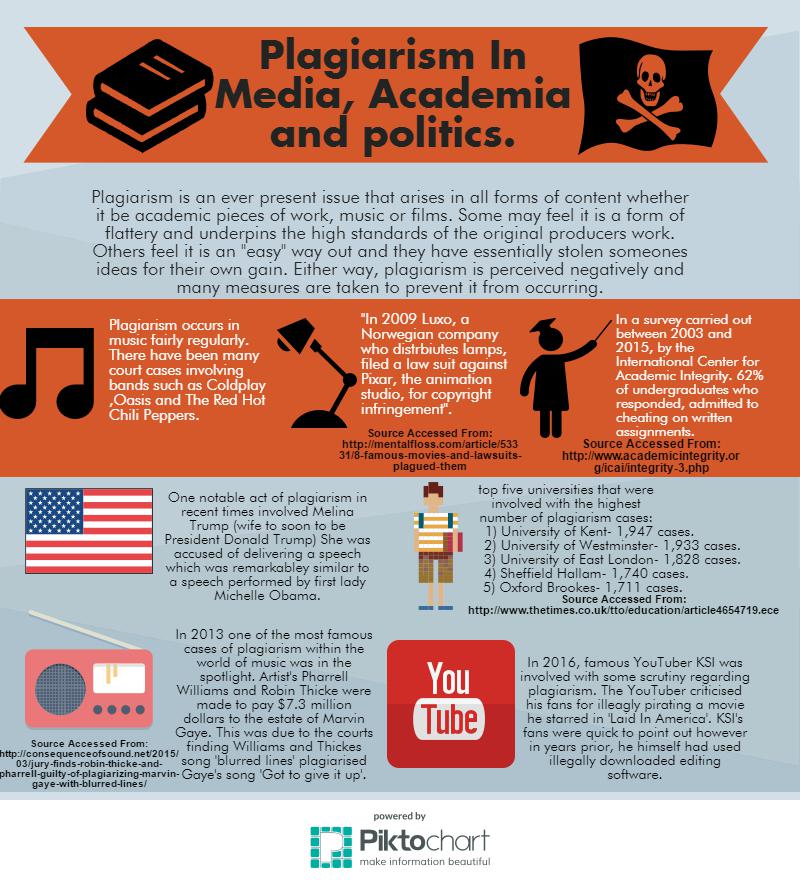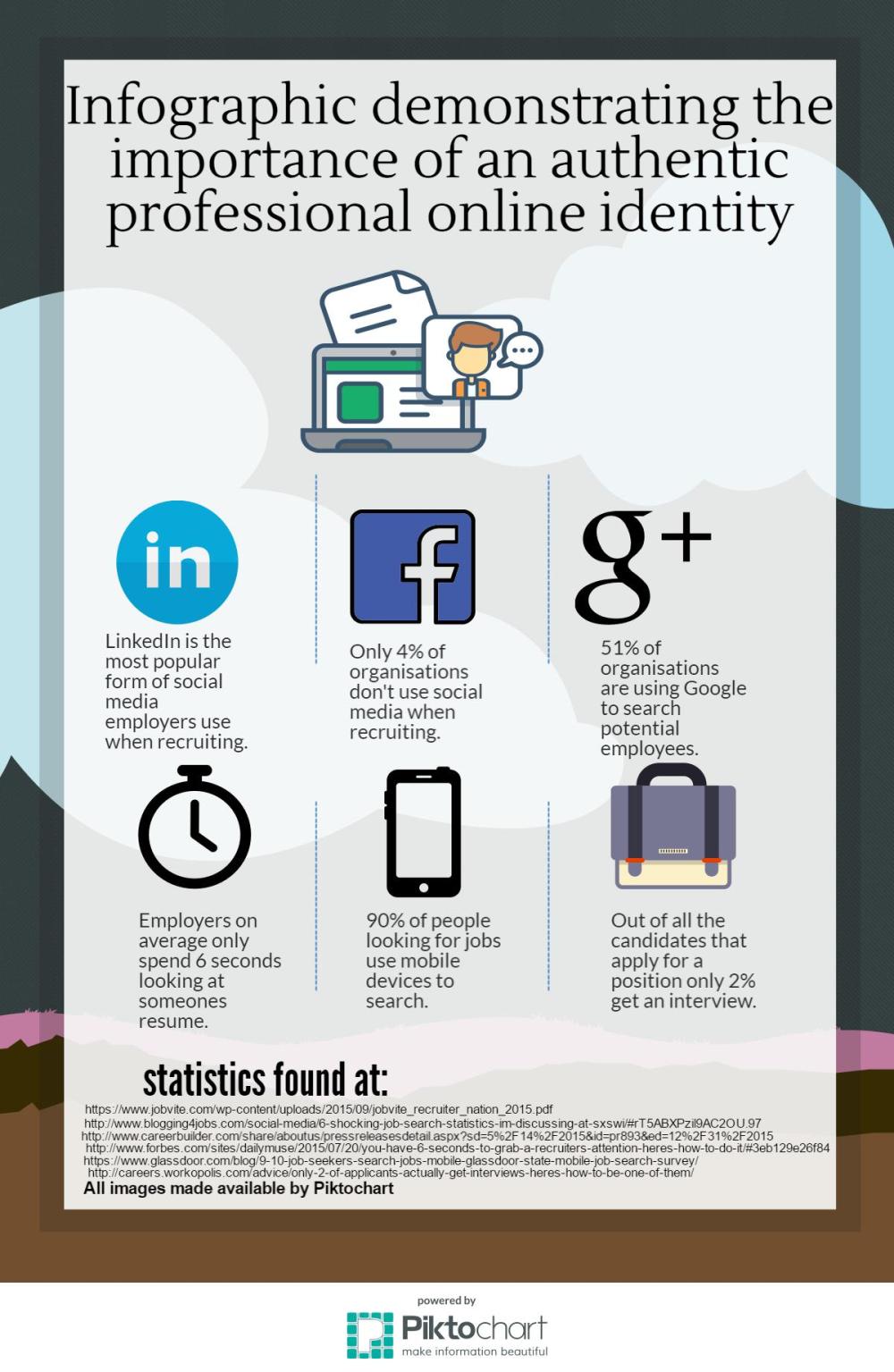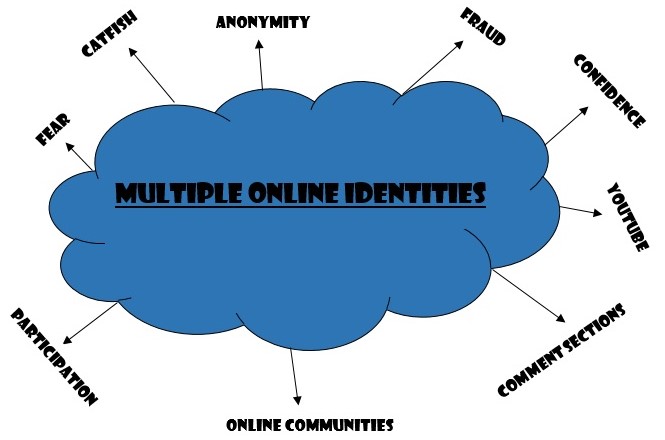
Reflections on UOSM2033
This module has not just helped improve my online professional profile greatly, it has also opened my eyes to how being active and involved online can help with networking and ultimately job opportunities.
Before this module, I did not have any form of professional online profile. I had a Facebook account, which was for personal use, but without knowing the content I was posting may have actually hindered my job prospects.
Continue reading →











